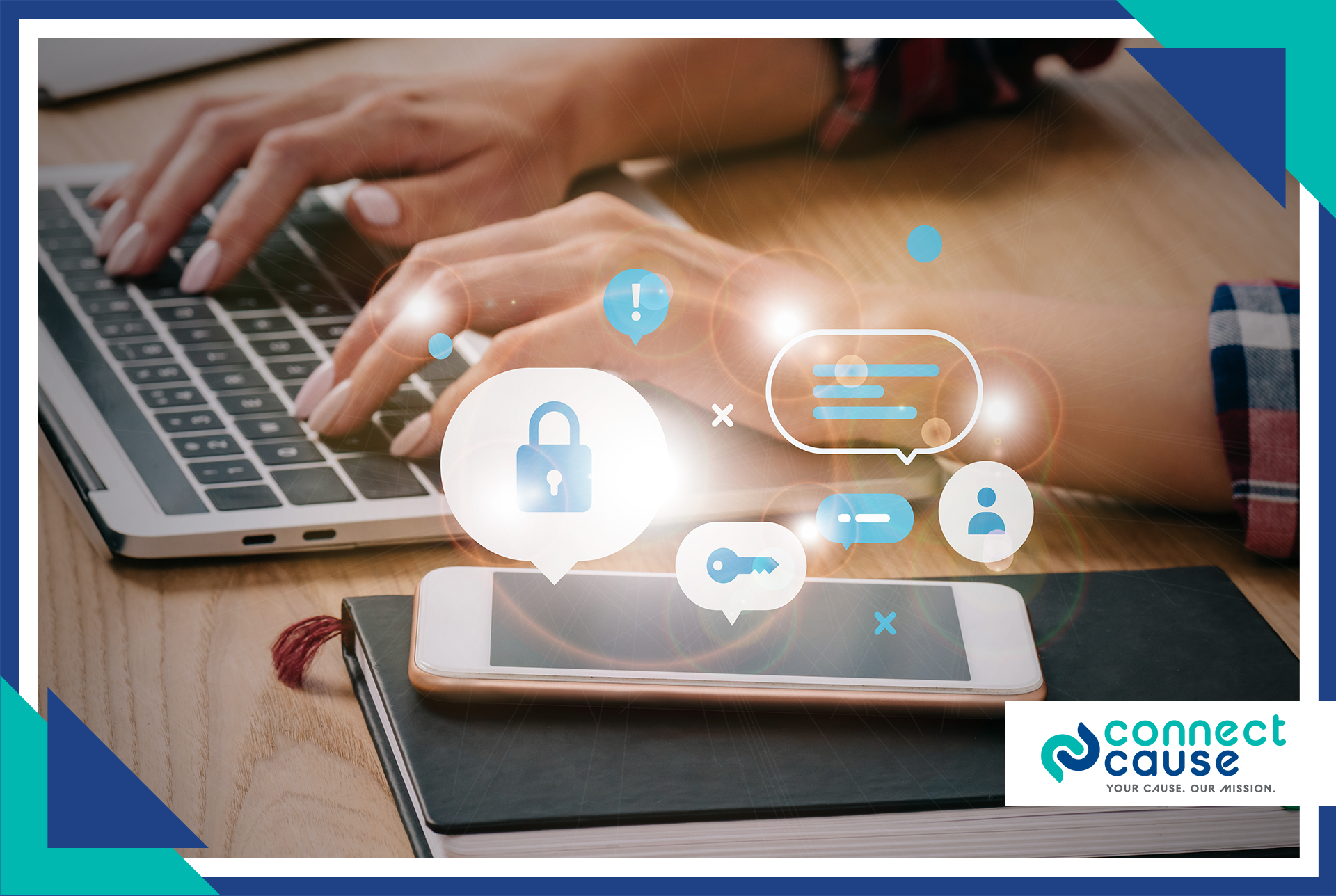Keeping your nonprofit secure with a VPN
The internet is a dangerous place…don’t trust it with your data
As the world becomes increasingly digitized and the home-based workforce becomes even more prevalent, security and ensuring that employee and client data remains protected has come front and center in tech and non-tech circles alike. A data breach can be detrimental to an organization’s reputation, employee morale, and in some cases exposes a nonprofit organization to fines and litigation. In the case of organizations that are involved with health and human services and as such are required to be HIPAA compliant, or any organization that handles financial information and is required to be PCI or other financial compliance standards-compliant, a data breach can result in massive fines, brand damage, financial and legal audits, and in some cases, can jeopardize the continued operation of the organization.
So, what steps can be taken to help prevent such security risks, especially in the current work-from-home environment?
It’s important to remember that there is no single, silver bullet-style solution that provides protection from any nefarious actor or service. A comprehensive security strategy comprised of multiple layers of purpose-built tools and consistent monitoring, vigilance and end-user awareness training are the key elements to protecting you and your organization from would-be cyberthreats and hackers. The subject of a comprehensive security strategy is far beyond the scope of this short blog article, but there is one piece of the security and cyber-protection puzzle that can provide a great deal of security gain with a very small amount of effort: a Virtual Private Network or VPN.
A VPN, as its name implies, is designed to create a virtual private network inside a public network, essentially walling off or “sealing” the traffic between two resources. Think of it as a nearly impenetrable digital tunnel that exists between you and your users, which keeps anyone or anything outside that tunnel from being able to see your data and thus denying them the opportunity to compromise or breach it.
VPN uses advanced cryptographic methods (very complex mathematical algorithms) that send encrypted traffic from one endpoint (you, your users, or your whole office, for example) and the data you need (an online server, service, or website, such as a bank website, for example).
Among the many features of a VPN are:
- Powerful encryption methods to secure data
- A ‘kill switch’ failsafe feature that cuts the internet connection should you lose connection to your VPN server
- Cross-platform compatibility
While there are numerous types of VPN offered by many different providers, we will mention and describe the three most popular and relevant types in this article:
- Site-to-Site
- Point-to-Site
- Personal
Site-to-Site VPN
Site-to-Site VPN connects whole networks of computers together, with a secure tunnel over the internet joining them. This type of VPN is usually implemented via firewall devices on either side of the CVPN, eliminating the need for users to manually connect to resources. Often referred to as “Branch Office VPN”, the Site-to-Site VPN is commonly used by organizations that have more than one office and wish to share resources like servers, files and even printers. Users on either network can be set up to access resources like a server or printer on the other side of the tunnel as though they are sitting in the same physical office. Security appliance manufacturers such as SonicWall, Cisco and Watchguard are just a few of the companies that specialize in devices that provide secure tunnel and location-linking benefits of the Site-to-Site VPN.
Point-to-Site VPN
Much like the Site-to-Site VPN, the Point-to-Site VPN is usually accomplished by using hardware, at least on one side of the connection, that is. The difference with this type of VPN is that one side of the VPN is a single user (or groups of single users), connecting usually from separate locations, such as from their homes. Point-to-Site VPN usually has a firewall or security appliance on the office end of things, and the users install and run VPN software on their laptop which then creates a secure tunnel for them to connect to office resources from their home, the road or anywhere else they happen to be. NetExtender for SonicWall or AnyConnect for Cisco are common VPN Point-to-Site offerings that secure connections to an office and its resources from wherever the user may be.
Personal VPN
For those users or organizations who may not have resources such as a server, files, or printers to connect to or may not even have an office, the Personal VPN offers protection for any and all connections a user makes to online resources and other computers. Like the Point-to-Site VPN, the user would have VPN software installed on their computer that links to a VPN service in the cloud. Without an office and resources to protect, why would one need a Personal VPN? Regardless of what your office situation is, the internet is OPEN, which means that your data traverses it unprotected in most cases. A Personal VPN protects you by creating that secure tunnel, thus protecting your data and identity within it. Some popular Personal VPN services include NordVPN, Surf Shark, and ProtonVPN just to name a few.
For organizations, Site-to-Site and Point-to-Site VPNs are far more prevalent and useful, mainly due to the common elements of the office and office resources such as file and print services, as well as servers running applications in a central location. In many cases, a hybrid approach is warranted, where your organization may have multiple offices that need to be securely connected but also has remote users that need a secure method to connect from their home or on the road. This scenario is common and can be implemented with most security appliance/firewall devices and the technology know-how of your trusty Information Technology partner.
As we become more reliant upon technology, especially in the age of work-from-home, it is becoming increasingly important to secure and protect a nonprofit organization’s data. A VPN serves as a valuable tool in this endeavor and can provide your organization with an irreplaceable keystone in the wall of cybersecurity and protection.
Want more information, or want an expert to make sure you are doing the most to keep your data secure? Contact us today and we will perform a complimentary tech assessment to show you exactly what kind of shape your technology is in.
—www.ConnectCause.com—



